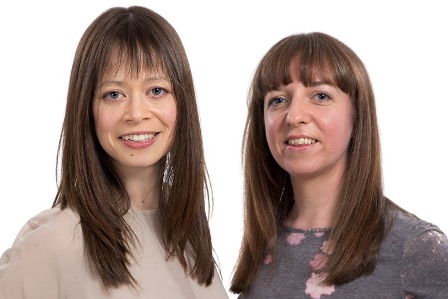Coleridge and Wordsworth, Byron and Shelley, Fitzgerald and Hemingway: we’ve all heard of the great male literary friendships. But who did Jane Austen turn to for encouragement with her writing? What about George Eliot? Or the mythically reclusive Emily Dickinson?

Conventional wisdom may have it that, for women at least, professional striving and supportiveness don’t easily go together but, as female pals who’ve relied on each other from the start of our writing careers, we’ve always been suspicious of that assumption.
We couldn’t help hoping that at least some of the most fêted female novelists and poets must have had significant literary relationships of their own. Still, since only Charlotte Brontë and Elizabeth Gaskell came to mind at first, we decided to do a bit of historical sleuthing.
Our quest for answers led us to write a series of articles, in which we featured the likes of Vera Brittain and Winifred Holtby, authors of Testament of Youth and South Riding respectively, and modernists Katherine Mansfield and Virginia Woolf. These two, we found, though remembered as bitter rivals, actually enjoyed a sometimes troubled but mutually nourishing friendship.
As writers we knew started to hear about our research, we began to get tip-offs about other women’s partnerships. As we looked into their recommendations, and followed up on leads of our own, we puzzled over the question of why these fascinating relationships have received far less attention than those of their male counterparts.
So, we decided to set up Something Rhymed. Our online blog – which takes its name from a poem by Jackie Kay about her novelist pal Ali Smith – launched at the start of 2014.
Throughout this year, we’ve been profiling one pair of female writer friends each month and encouraging readers to get in touch with their own ideas of other authors we could profile on the site.
We soon found the answers to all those initial questions too, identifying the close literary pals of Jane Austen and Emily Dickinson, who we’ve featured on the site already, and George Eliot, forthcoming in a post later this year.
Week-by-week, month-by-month, we’ve built up a strong base of readers. Amongst them are writers and booklovers, literary editors and academics, and people who are simply fed up with seeing ambitious women’s relationships so consistently characterised as bitchy and backstabbing. There seems to be a genuine appetite to rejoice in their positive possibilities instead.
We've had blog followers from all over the world contact us, via Twitter or on our site and we've had the opportunity to interview some of today’s most high-profile female writer pals. And although we haven’t quite cracked the conundrum, we feel much closer to understanding the reasons why these crucial literary partnerships have so often been misrepresented by history or written out altogether.
The most immediately obvious factor is that, in contrast to those of the most celebrated male pals of old, these relationships were most often carried out within private domestic spheres. Unlike Dickens and Wilkie Collins, Gaskell and Brontë never visited risqué music halls together; unlike Fitzgerald and Hemingway, Mansfield and Woolf never chronicled joint drinking binges in their published writings.
Even more significant, perhaps, is that whilst most of these men’s writing partnerships suffered spectacular bust-ups, many of the friendships we’ve featured on our blog this year were relatively harmonious. So it could also be that their frequent lack of drama has cost them newspaper column inches and lengthy entries in literary biographies.
Potentially most insidious, however, it that, unlike the camaraderie of Byron and Shelley, frequently recalled as robustly combative, the professional rivalry of Woolf and Mansfield is seen as entirely incompatible with female friendship.
As the year progresses, we’ve increasingly been led to wonder whether the lack of a level playing field lies at the root of it all. Although society has traditionally allowed men to accommodate healthy competition within their relationships, the same has been looked on much less favourably when it occurs between women.
An unexpected joy of the project is that we’re now able to see ourselves as part of a community of readers and writers: one that challenges the all-too-often held assumption that friendship is something that cannot exist between ambitious, creative women.
Emily Midorikawa and Emma Claire Sweeney run Something Rhymed – a blog that celebrates the literary friendships of famous female authors. They’ve also written about this subject for publications including the Independent on Sunday, Mslexia and The Times. You can follow them on Twitter at @EmilyMidorikawa and @emmacsweeney.
Image credit: Emily Midorikawa and Emma Claire Sweeney (© GREGphoto)
Comments